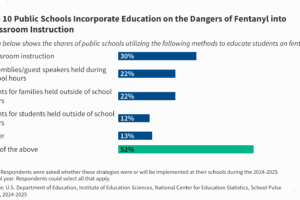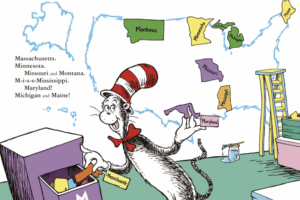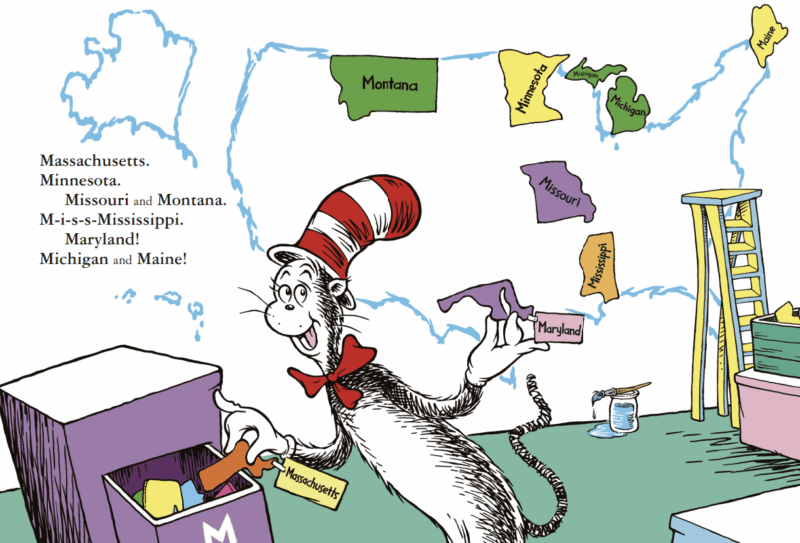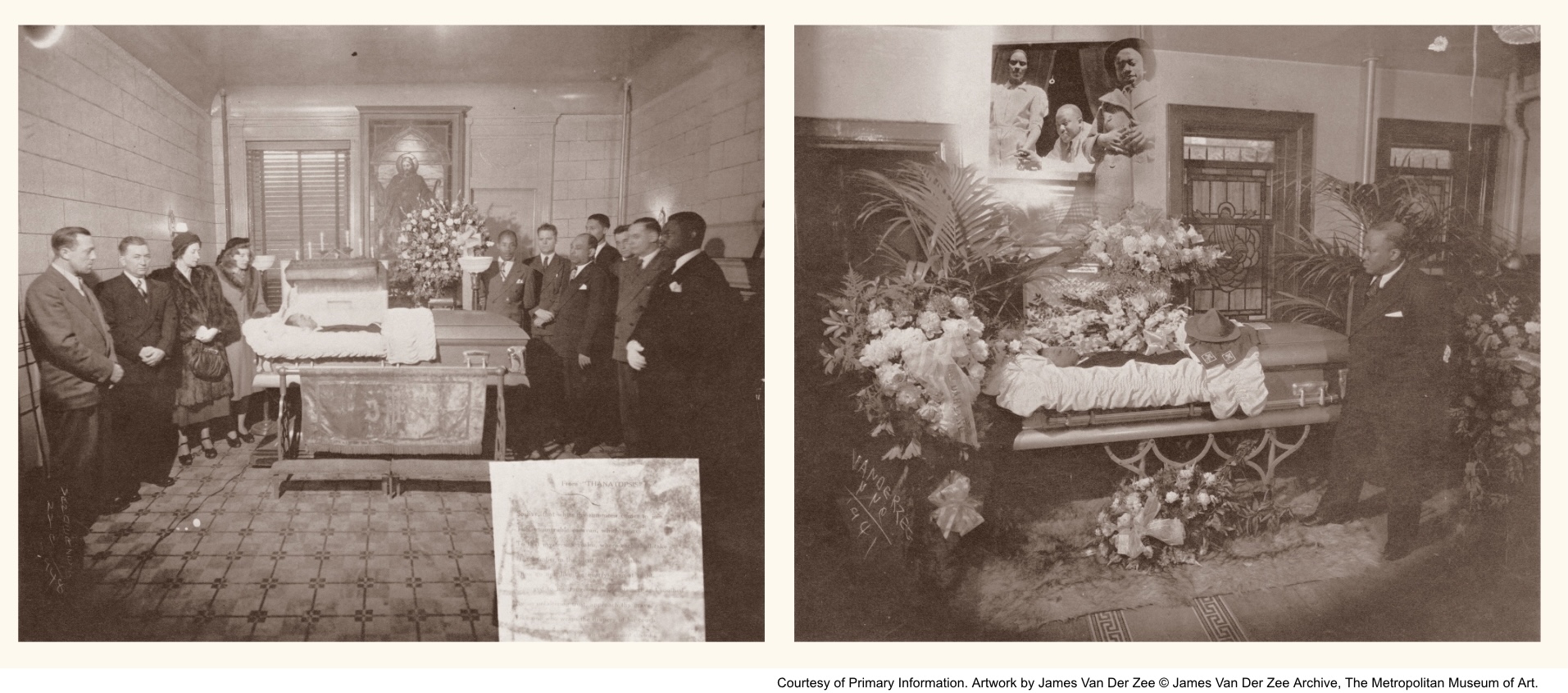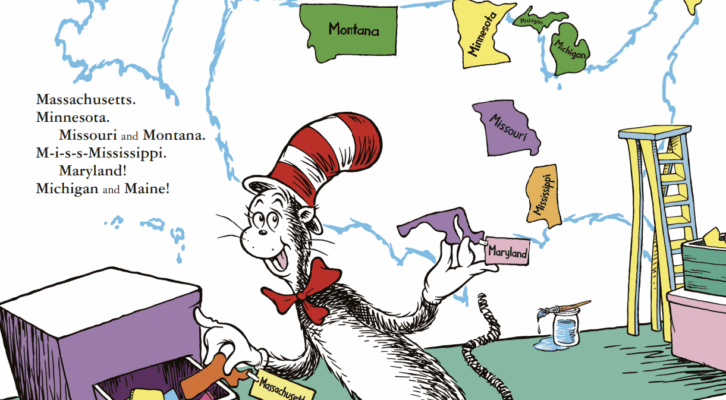
Ted Geisel, the doctor best known for spreading the gospel of green eggs and ham, has a deep bench of classic kid’s books. Dr. Seuss gave us cats in hats and star-bellied sneetches. He gave some of us our first foothold in the ABAB rhyme scheme, and a nascent eco-socialist consciousness.
The man cuts a curious, sometimes controversial figure. Certain of his titles came under fire in recent years for the presence of racist caricatures, even as other fans noted the radical humanism behind his anti-isolationist political cartoons. A complex portrait emerges, but one thing can be sure: Dr. Seuss is the quintessential American children’s book author.
Today, fans of The Lorax, Yertle the Turtle, and How the Grinch Stole Christmas have a new reason to rejoice.
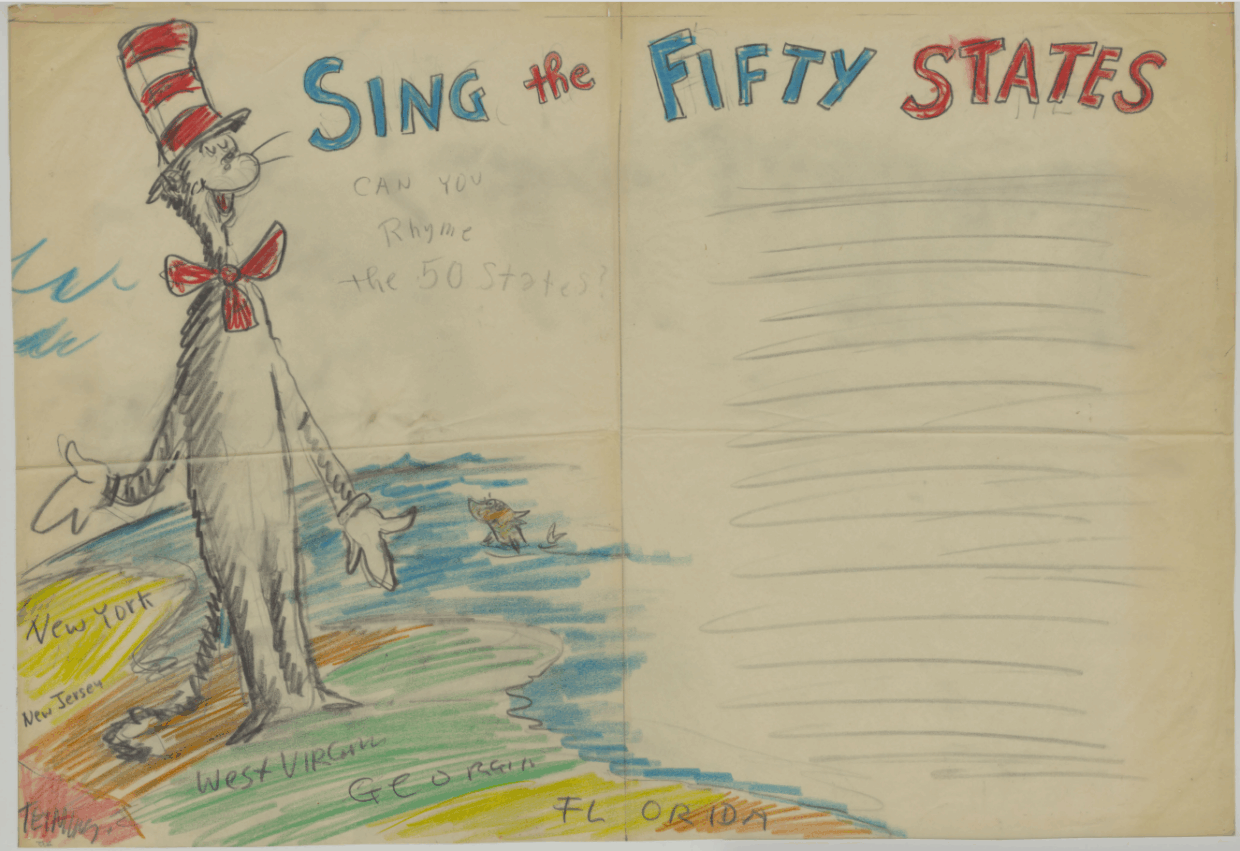 Archival sketch of the original cover of Sing the Fifty States.
Archival sketch of the original cover of Sing the Fifty States.
Sing the 50 United States!, a long lost Seussian title, was discovered earlier this year in a shady corner of UC San Diego’s Geisel Library. The unpublished picture book bids readers to “learn and name all fifty states together.”
It features canonic cameos. (See: the aforementioned Cat in the Hat.) Readers are led through a sweeping hymn to statehood, along with “two Little Cat helpers.” The goal is a method to rival that ear-worm,”Fifty Nifty...”
The new/old book will be published by Random House next summer, with a first printing of 500,000 copies. This addition to the Seuss canon will also arrive with easter eggs, like “excerpts and sketches from Geisel’s original manuscript” and a hand-drawn map of the United States. The latter is particularly timely, given the book’s scheduled release during the country’s sesquicentennial.
This rediscovery comes on the heels of another posthumous Seuss release: 2015’s What Pet Should I Get? Which gives this all an extra element of buried treasure.
Maybe the archives will keep on surprising us. Oh, The Places You’ll Go!-style.
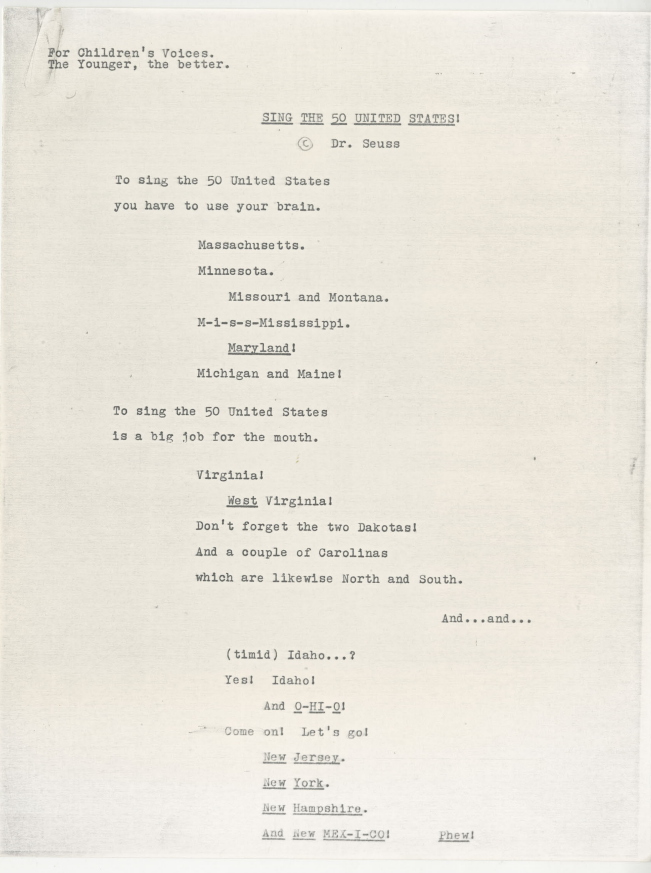 An early draft of the book’s text.
An early draft of the book’s text.
As Fiona MacDonald observed in the BBC, Seuss wrote from a place of unusually clear delight in the natural world, and often used his books to question “the values and conventions of adults.”
America’s 250th sounds like fine time for such a Q&A.
Images via Penguin Random House.


